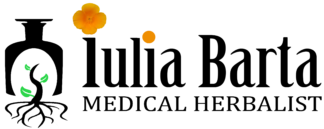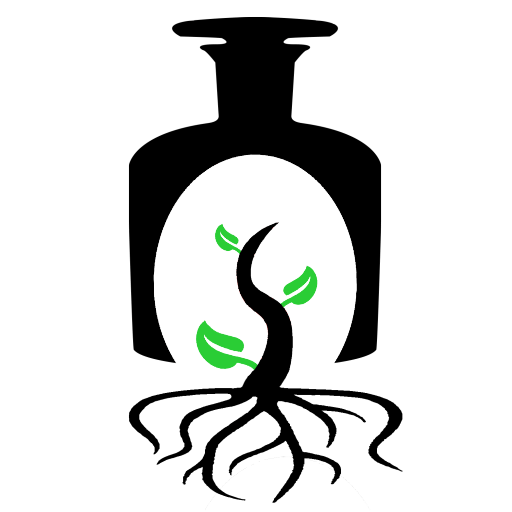The most common conditions treated by herbalists include:
- Immune System related illnesses e.g. recurrent infections, low immunity, the common cold, respiratory infections.
- Allergies e.g. hayfever, asthma
- Autoimmune Conditions e.g. rheumatoid arthritis, ulcerative colitis, Crohn’s disease, psoriasis
- Low energy and Chronic Fatigue Syndromes
- Emotional Health e.g. mild depression, anxiety, stress.
- Hormonal issues incl. Premenstrual Syndrome (PMS), menopausal symptoms, herbal alternative to HRT
- Fertility, Pregnancy and Childbirth
- Digestive issues e.g. Irritable bowel syndrome (IBS). dyspepsia, constipation, diarrhoea, food intolerance.
- Skin issues e.g. Eczema, fungal infections,, psoriasis
- Heart and Circulation
- Joints and Bones e.g. Back pain and Osteoarthritis (OA)
- Diabetes type II
- Nutrition and Nourishment
- Migraines and headaches
The herbal treatment is adapted to suit all ages and conditions including children, elderly and pregnant women.
Herbal Medicine, also called phytotherapy, is the oldest form of medicine. People have used medicinal plants for thousands of years to restore health and well-being. Archaeological excavations dated as early as 60,000 years ago have found remains of medicinal plants, such as opium poppies, ephedra, and cannabis (Tyler, 2000).
Western Herbal medicine as practiced today combines traditional knowledge of herbs with updated scientific understanding and research.
Many important drugs used nowadays, for instance aspirin, quinine and morphine, were first synthesised from plants (Veeresham, 2012). Unlike most conventional drugs which normally contain one active ingredient, herbs contain a multitude of ingredients which together help support the body’s functions. Also, many herbs have fewer side effects than conventional medicines. Under the supervision of a qualified medical herbalist, herbs may be used alongside prescribed medicines to support the body.
A qualified medical herbalist is the go-to expert when it comes to natural medicines. They have a BSc or equivalent in Herbal Medicine, have studied orthodox medicine as well as botanical medicine and are trained in the same diagnostic skills as a GP (NIMH, 2017). However, herbalists take a holistic approach to illness, aiming to identify and treat the root cause of the disease, rather than just focus on the symptoms. Each patient is treated as an individual – a herbalist recognizes that no two patients are the same.
Besides botanical medicine, herbalists study medical modules such as Pharmacology, Pathophysiology and Clinical Skills so that they can interpret blood test results and perform physical examinations. They are also able to prescribe herbal remedies to be used safely alongside other medication and treatments, and many patients are referred to a Herbalist by their GP for treatment.
With so many choices available nowadays when it comes to natural remedies, supplements and dietary advice, it is common for people to feel overwhelmed. Medical herbalists are able to assess your health and prescribe safe and effective natural medicines tailored to your needs.
For more details regarding becoming a medical herbalist click here.
During the first consultation your Medical Herbalist will build up a picture of you and your health by:
- Exploring your main health concerns and any existent conditions in detail
- Finding out about any medication or supplements you take
- Taking your full case history
- Asking about your family’s medical history
- Discussing your diet and lifestyle
- Asking questions regarding your general health
- Taking your blood pressure and pulse and performing other physical examinations if necessary
This allows your herbalist to assess the underlying causes of your illness and formulate a mixture of herbs and supplements as well as give you dietary advice. It may also be necessary to arrange for other tests to be done.
After the initial consultation, three or four shorter consultations are usually necessary to assess your progress, followed by check-ups every three to six months, depending on the nature of your condition. Because herbal medicines work in a gentle and subtle way, they can take longer to work than orthodox drugs, but their effects are long lasting and there should be no side effects.
Herbal medicines are made from different plant parts eg. leaves and flowers or solely the roots. Each part can have different medicinal uses and the many types of chemical constituents require different extraction methods.
Your herbal medicine treatment may include:
- Tinctures: Alcohol-based preparations or non-alcohol alternatives such as vegetable glycerines. Most herbal medicines are given in the form of a tincture and a common dose is 5ml three times daily or 7.5ml twice daily.
- Infusions/Herbal Teas: dried or fresh herbs, usually aerial parts, steeped in boiling water
- Nutritional supplements e.g. probiotics
- Syrups: herbs incorporated into a thick sweet liquid e.g. cough syrup
- Powders (loose or in capsule form) e.g. slippery elm powder
- Herbal Creams, Ointments or Oils for the treatment of skin conditions e.g. Marigold/Calendula infused oil
- Steam inhalations
- Baths and skin washes
- Gargles and mouthwashes
- Pessaries and suppositories


